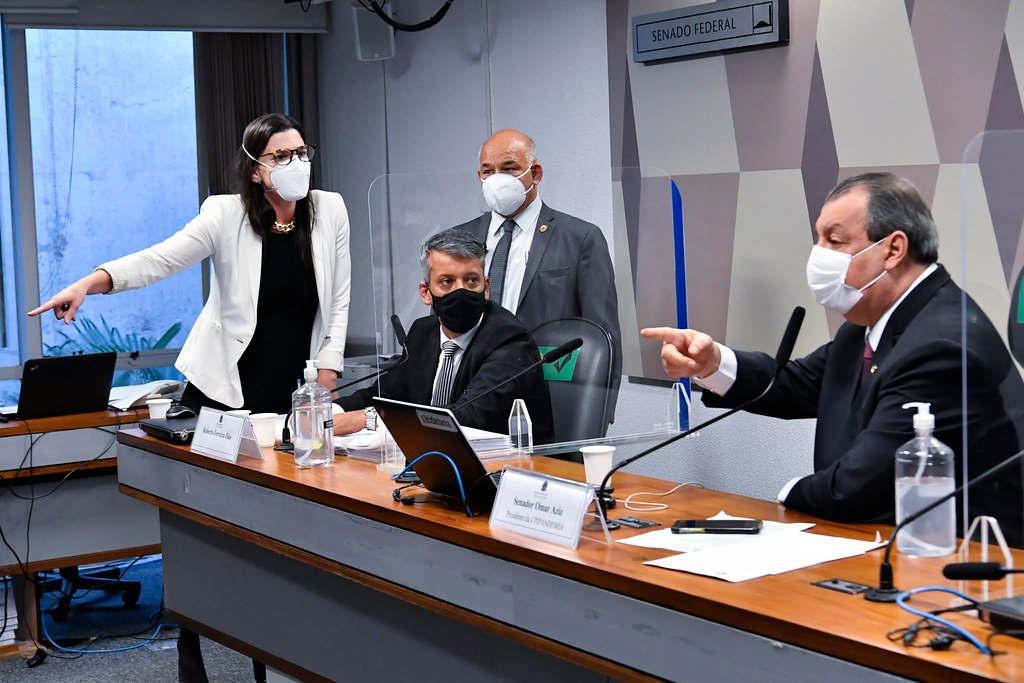Covid’s Parliamentary Commission (CPI) just finished its first 90 days of works. During this period, the CPI investigated the support for early treatment by the government, the Manaus’ oxygen crisis, and the delay in the acquisition of vaccines. It also requested the Court of Accounts (TCU) to oversee the use of federal funds by governors. On June 25th, corruption allegations involving President Jair Bolsonaro and officials regarding the acquisition of Covaxin and AstraZeneca vaccines, led to new investigations and fueled a series of acts in support and against the government.
This Content Is Only For Subscribers
To unlock this content, subscribe to INTERLIRA Reports.
THE COMMISSION: ORIGINS AND DEVELOPMENTS
On April 27th, the CPI had two essential objectives: investigate the government actions in the fight against the pandemic and the possible misuse of federal funds by governors.
To pursue the first objective, senators have created several lines of inquiry. One of them focuses on early treatments promoted by the government and former health ministers were heard by the commission. Amongst them, Henrique Mandetta stated that the Government tried to change the chloroquine leaflet to indicate its use for Covid. In this context, there are running investigations about the existence of a parallel counselling office, which would have proposed controversial measures.
Another line of inquiry has been checking the facts behind the Manaus’ oxygen crisis. Congressmen tried to understand who between the local or the federal government is responsible for the Crisis.For this, former Health Minister Eduardo Pazuello testified on May 19th and 20th and blamed the Amazonas state for the lack of oxygen. In addition, Pazuello said that Governor Wilson Lima refused federal aid to strengthen Amazonas’ health system, which was later denied by Lima.
The third line of inquiry has been examining the reasons for the delay in the acquisition of vaccines. Former Chancellor Ernesto Araújo is among the investigated. Senators want to check if Araújo’s international policy hampered Brazil’s capacity to obtain medical supplies and vaccines with China. In this regard, senators questioned Pfizer Latin-America General Manager Carlos Murillo, who declared that 9 vaccine offers were ignored by Brazil.
The other essential objective of the CPI, which is supported by a group of senators aligned with the government, could not be completed by the commission itself. Supreme Court (STF) Ministers ruled that the Federal Court of Accounts (TCU) was in fact the institution responsible for overseeing the use of federal funds by governors. The task was accepted by the TCU on July 14th.
CORRUPTION ALLEGATIONS
On June 25th, the third line of inquiry led to corruption allegations. Health Ministry servant Ricardo Miranda told the CPI that there would be a series of irregularities in the negotiations to acquire the Covaxin vaccine and that he was pressured to approve the deal. He would have drawn the attention of the President, who would have mentioned Federal Deputy Ricardo Barros as responsible for the irregularities. Miranda also accused the President of not acting to investigate the complaint, while Bolsonaro stated that he had requested Pazuello to check the case.
Another corruption allegation was revealed by the commercial representative Paulo Dominguetti. He told that while negotiating 400 million AstraZeneca doses, Health Ministry Director Roberto Dias requested from him a US$ 1 bribe per dose. The President would also have been aware of this case. Reverend Amilton Gomes, who had been authorized by the government to negotiate vaccines, reportedly discussed the topic with the President. The version was denied by both.
HEATED POLITICAL DEBATE
With the development of the CPI, many acts started to appear on the streets, indicating a possible intensification of the disputes in the political scenario. Several protests organized by the opposition occurred across the country and acts of violence and clashes with the police were reported in some cities. At the same time, President Bolsonaro and his supporters promoted motorcades in many states.
ANOTHER 90 DAYS
On July 14th, the CPI was extended for more than 90 days. Thus, it should last until November.
Despite the many allegations and dozens of testimonies collected, critics say that the commission has not achieved anything. For instance, Senator Marcos Rogério declared that no evidence was found so far. Likewise, Senator Fernando Bezerra stated that the work lacks materiality.
Since the CPI was extended, it is hard to foresee its legal consequences. Still, in the political field, the CPI may have agitated the scenario, leading to protests and debates. However, the impacts of the events unfolding now may be more visible next year, during the elections. Regarding the impeachment requests against the President, it seems that the CPI did not create the conditions for it, according to the Federal Chamber President, Arthur Lira.




